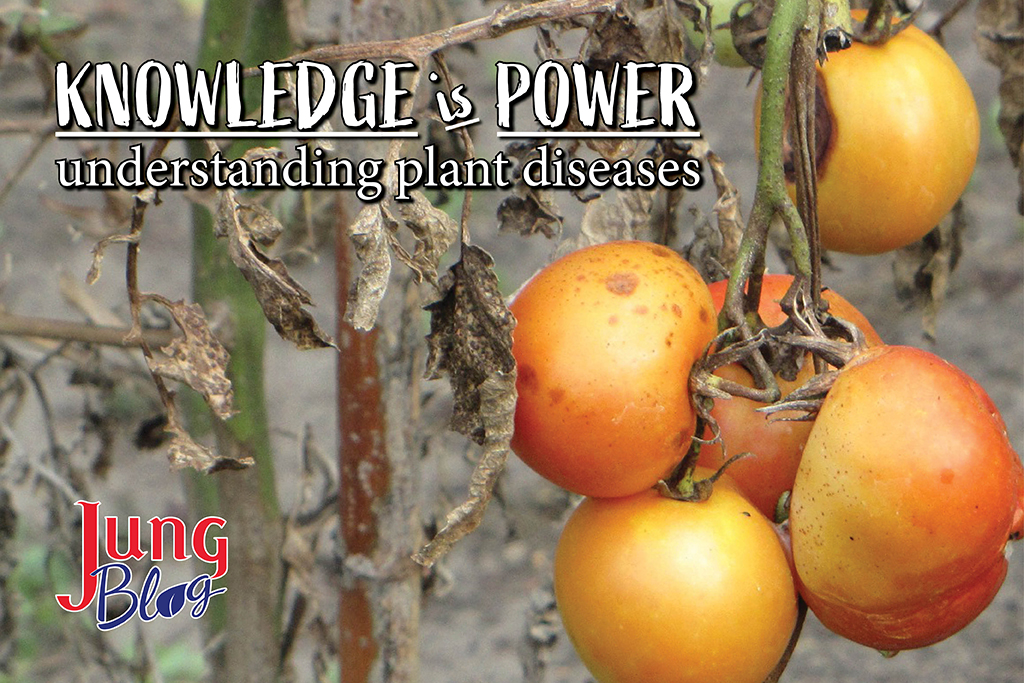
Updated: July 2, 2024
There are dozens of different types of plant diseases that can affect vegetable gardens from coast to coast. Plant diseases should not be a mystery to most gardeners, and yet… all types of gardeners struggle with them every season. Solutions are obvious, but understanding is the first step.
Plant Disease Diagnosis
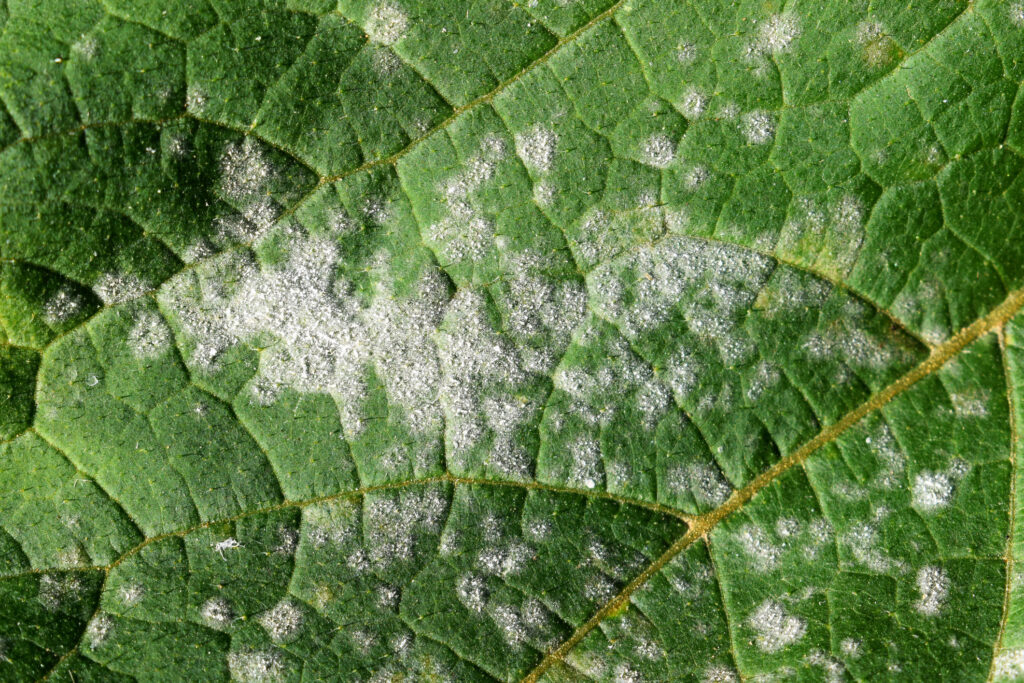
Plant disease management starts with proper disease diagnosis. Just like a clinical physician, the doctor will ask, “What symptoms do you have?” In the garden, we must ask, “What symptoms does the plant have?”
Nowadays, you may be able to narrow down the possibilities by looking for examples online or using an app, however, the best way to get a true and accurate diagnosis is by sending a sample to a university plant disease diagnostic lab for testing. From their expert testing and diagnosis, the pathologists will send you back results with recommendations for a treatment plan.
Short of that, sharing photos with a qualified horticultural professional is best. Asking your neighbor can be a risk! They almost always have an answer, but how accurate is it?!
Control & Management of Plant Diseases
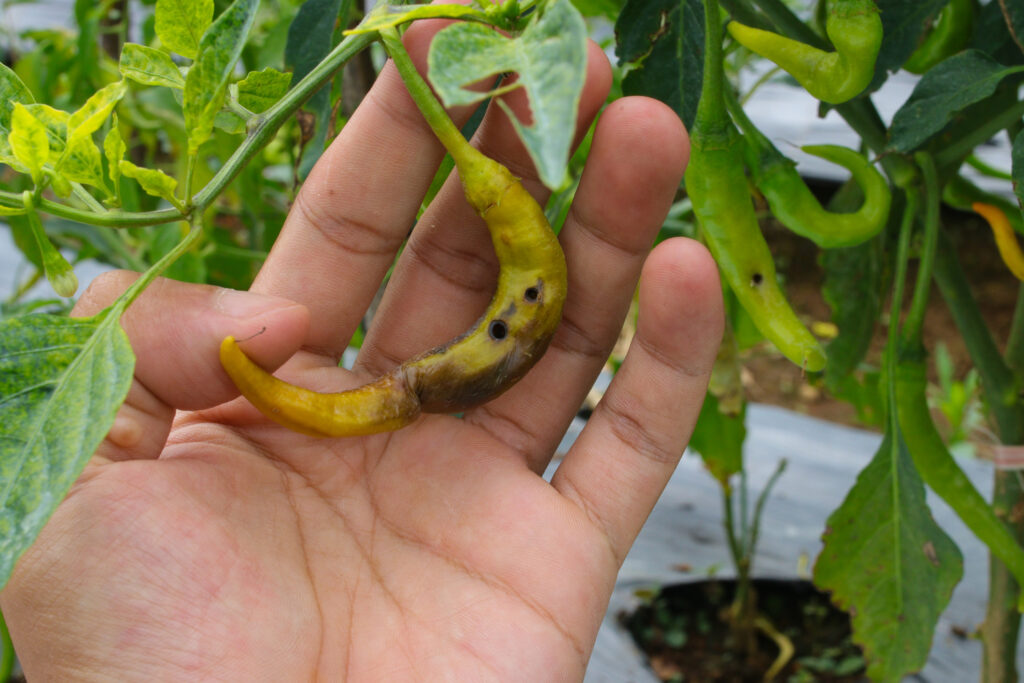
When plants develop disease symptoms, we ask What’s this? Where did it come from? What do I do now? These are all valid questions when we see our plants starting to decline.
The answers depend on what type of disease your plants are infected with. The good news is, that this may not be as complex or mysterious as you might think.
Every disease type has specific ways they spread and therefore, particular ways to best control them. Below is a synopsis of these 3 disease types with clear and helpful suggestions for basic control measures to follow.
Bacterial Diseases

- Not very common, and their existence can be complex.
- Bacterial pathogens are spread mostly by insect feeding.
- Control the pests feeding and you can prevent these diseases. (For the most part)
- Bacterial diseases are nearly impossible to control.
- Since there is no cure, the recommendation is to remove & destroy infected plants.
Fungal Diseases
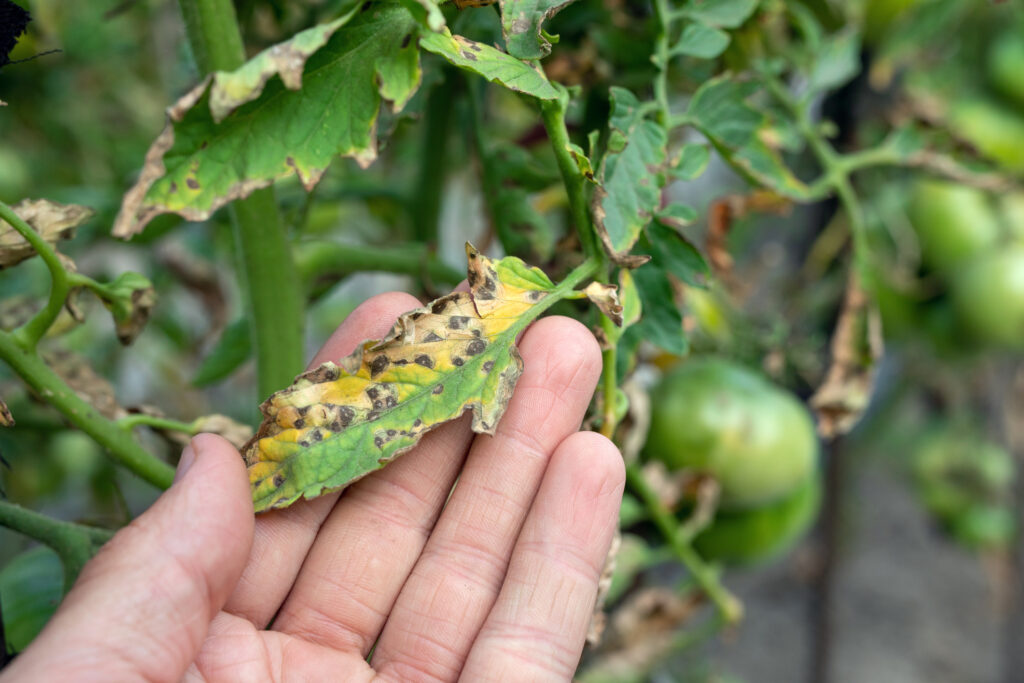
- By far the most prevalent of all types of garden diseases.
- Many pathogens exist with innumerable plant hosts.
- Pathogens are most often spread by wind, rain, or already exist in the soil.
- Proper sanitation and prevention are the best control measures.
- Plant resistant varieties especially after fungal infections have occurred.
- Rotate crops every season, but possibly longer depending on the disease.
- Follow the 3 rights of fungicides
- Apply the right fungicide
- In the right amount
- At the right time
Viral Diseases
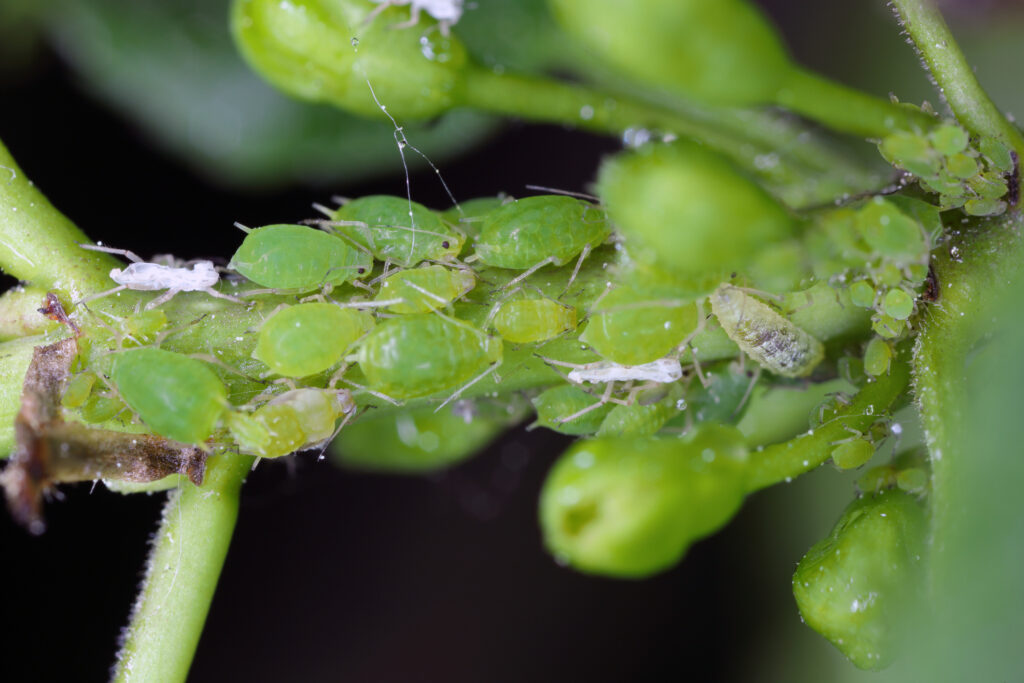
- Not prevalent diseases in home gardens.
- Viruses are restricted to a particular host which means they won’t infect everything in a garden, they’re only able to infect plant hosts in the same family.
- Most often spread by insect feeding (aphids, leafhoppers, mites, or nematodes mostly) small percentage can be spread from seed or by mechanical or vegetative means.
- Plant resistant varieties.
- Preventing insects from feeding is the most important control measure.
- Viruses are not curable. Once identified, removing & destroying infected plants is the best option.
Prevention Over Reaction
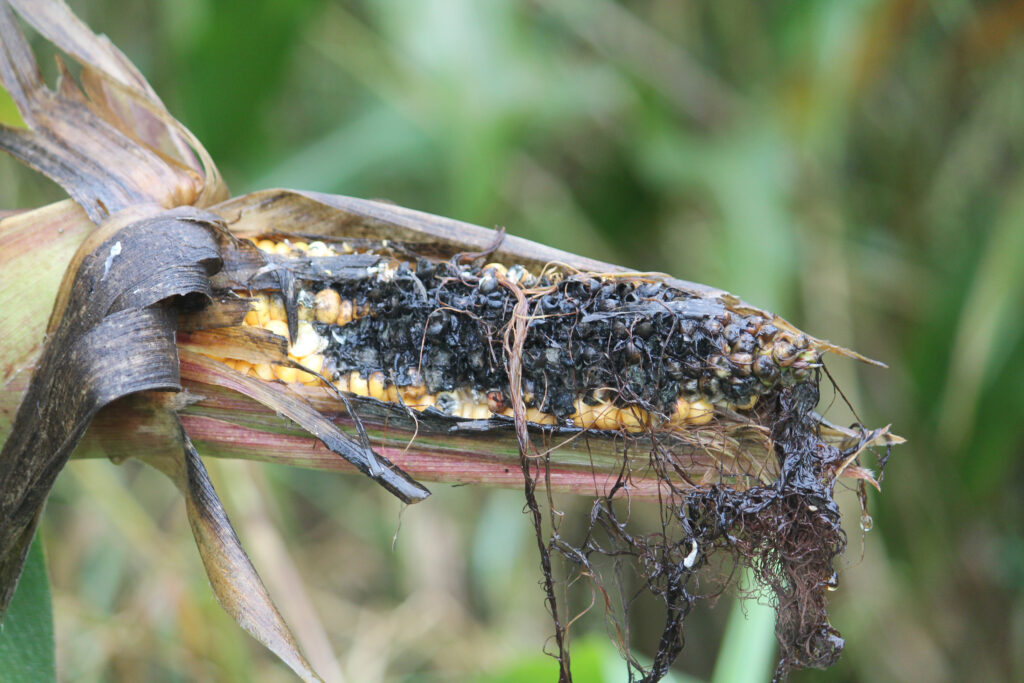
With plant diseases, a gardener has the choice to be proactive or reactive. Most gardeners are reactive, not proactive. Plant diseases are preventable, no matter what type. For our kids to stay healthy and resist diseases the Dr. recommends things like exercise, eating healthy vitamin & mineral-rich foods, getting enough sleep, and limiting harmful consumption. Plants are living, breathing things just like people. It should not be surprising that recommendations for resisting plant diseases are similarly logical and simple.
Tips For Plant Disease Prevention
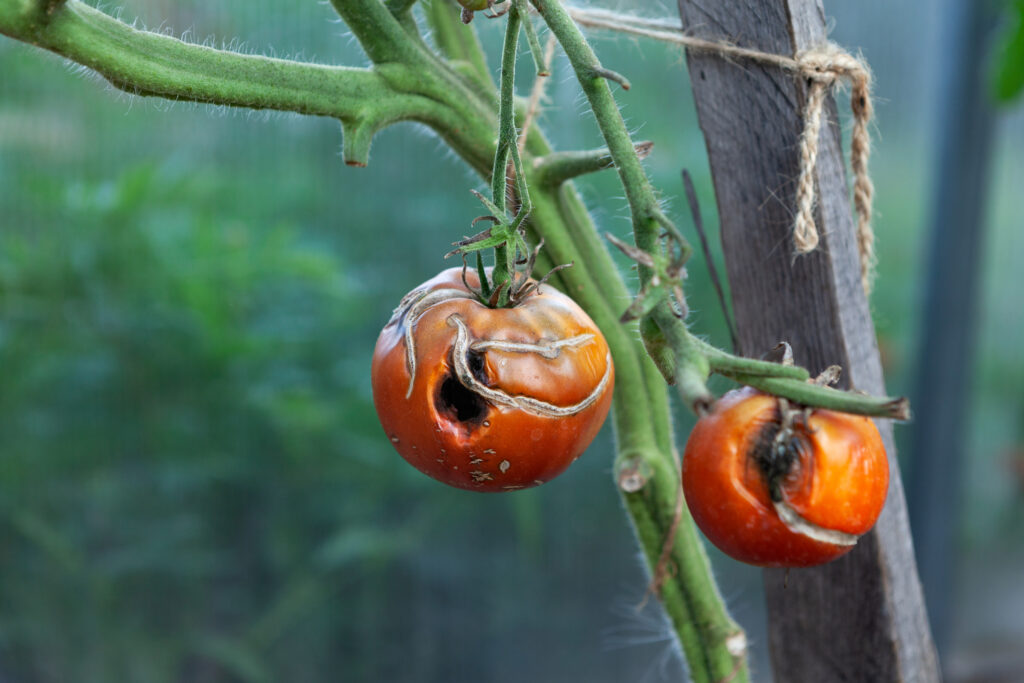
- Provide the plant with proper placement and spacing.
- Water regularly and consistently keeping foliage dry.
- Improve soil conditions with ample amounts of organic matter prior to planting.
- Provide plants with proper soil pH and nutrition.
- Limit associations and interference from detrimental weeds and pests.
The cold reality is for many plant diseases, by the time severe symptoms appear, the time for control has usually passed. There is no mystery. Diseases afflict plants in a specific way for specific reasons. If you consistently eliminate those ways or reasons, you will have little to no issues. A reactive gardener may be able to limit the spread of a disease, but in most cases, gardeners will have to live & suffer with whatever disease appears.
A proactive gardener will plant disease-resistant varieties, water and fertilize appropriately, and apply preventative fungicides in proper rotation to help suppress fungal outbreaks. Nothing too mystical about it, being properly proactive is the key to disease prevention and management in the vegetable garden.
Other Recommended Reading

- Black Rot On Grapes: Prevention & Management
- How To Prevent Yellow Shoulder Disorder On Tomatoes
- How To Manage Common Watermelon Fungal & Bacterial Diseases
- Summer Vegetable Gardening: Common Problems & Solutions
- Demystifying Fungicides
- Black Knot Fungus: Treatment & Prevention
- Prevent 4 Common Potato Plant Problems
At Jung Seed Co, we strive to be your go-to guide for all your gardening needs. Our YouTube channel The Garden Doctor by Dick Zondag is where he provides gardening tips for all levels of gardeners. When you need reliable gardening advice, turn to the trusted experts at Jung.
View our new catalog online or browse our website for your gardening favorites. To receive info on new products, exclusive deals, and specials, be sure to sign up for our weekly email. Join our Facebook page, to discuss all things gardening!
